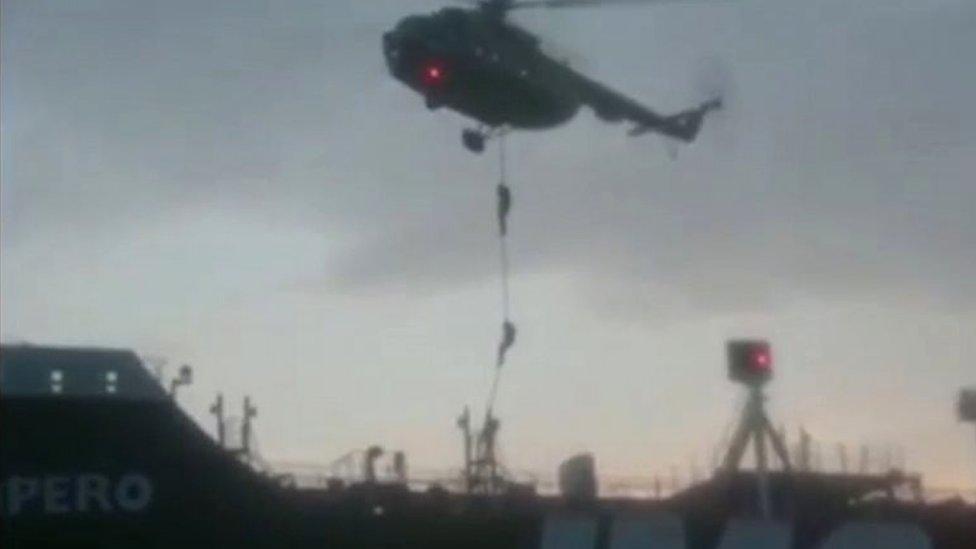Iran nuclear deal: Tehran to develop centrifuges for uranium enrichment
- Published
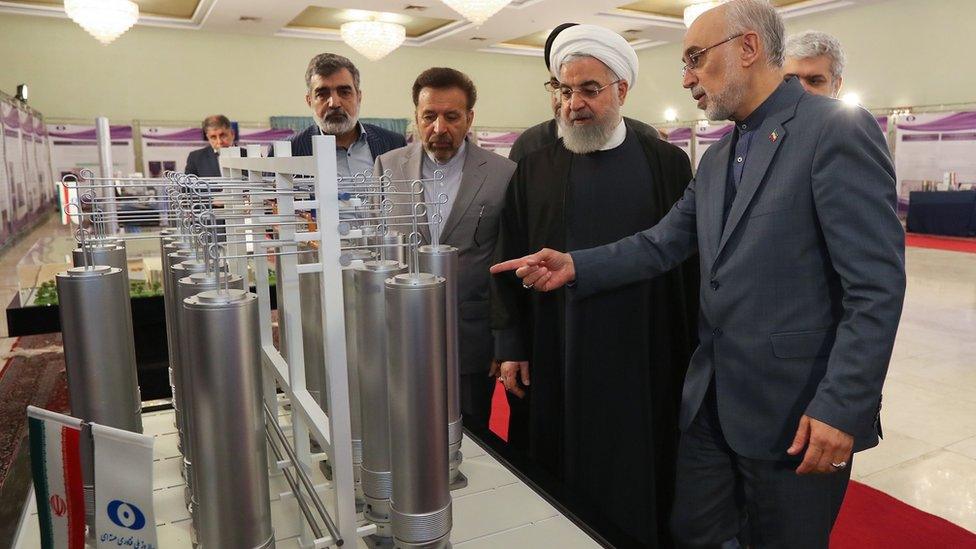
Hassan Rouhani (2nd right) has given European powers two months to save the nuclear deal
Iran is to lift all limits on its development of centrifuges used to enrich uranium on Friday - the latest step in reducing its commitments under a 2015 nuclear deal with world powers.
President Hassan Rouhani said the country would do whatever was necessary to be able to accelerate enrichment.
Enriched uranium can be used to make reactor fuel but also nuclear weapons.
Iran stopped abiding by two commitments in July in response to sanctions the US reinstated when it abandoned the deal.
President Donald Trump wants to force Iran to negotiate a new agreement that would place indefinite curbs on its nuclear programme and also halt its development of ballistic missiles. But Iran has so far refused.
Other countries which are parties to the deal - the UK, France, Germany, China and Russia - have tried to keep it alive. But the sanctions have caused Iran's oil exports to collapse, the value of its currency to plummet, and sent its inflation rate soaring.
What has Iran done?
Inspectors from the global nuclear watchdog, the International Atomic Energy Agency (IAEA), confirmed on 1 July that Iran had breached the 300kg (660lb) limit on the amount of enriched uranium it is allowed to stockpile.
Feeling the squeeze: Iran sanctions explained
Six days later, Iran began enriching uranium to 4.5% concentration so it could make fuel for its Bushehr power plant - beyond the 3.67% cap enshrined in the nuclear deal. Weapons-grade uranium is 90% enriched or more.
On Wednesday night, President Rouhani announced that "all limitations" imposed on Iran's research and development of centrifuge technology would also be lifted.
"We will witness research and development on different kinds of centrifuges and new centrifuges and also whatever is needed for enriching uranium in an accelerated way," he said.
Mr Rouhani stressed the activities would be peaceful and supervised by the IAEA.

Under the accord, Iran is allowed to operate no more than 5,060 IR-1 centrifuges - the oldest and least efficient model - until 2026.
The country is also permitted to continue research and development in a manner that does not accumulate enriched uranium, and to test more advanced IR-6 and IR-8 centrifuges, which can more quickly enrich uranium. After 2024, it may commence the testing of up to 30 IR-6 centrifuges.
The installation of advanced centrifuges would shorten Iran's so-called "break-out time" - the time required for it to produce enough fissile material for a bomb.

What is the significance of the move?

Unlike the United States, which has simply abandoned the nuclear deal, Iran has stuck with the agreement, only gradually breaching some of its terms in protest at what it sees as the failure of the other parties to come up with the benefits they promised.
But Iran's latest decision to breach the limits on its development and production of advanced centrifuges raises one inevitable question. Just how far can it go in abandoning elements of the deal before it is rendered worthless?
France is desperately trying to establish a financial lifeline for Iran to keep the deal alive. But would the US countenance such a move? Washington insists upon applying "maximum pressure" on Tehran. But is this strategy working?
Iran - unsurprisingly - shows no sign of seeking a new (and more restrictive) nuclear deal. And neither does it appear to be scaling back its ambitious regional plans that have prompted recent Israeli air strikes in Lebanon, Syria and Iraq.

What has been the reaction?
European Commission spokesman Carlos Martin Ruiz De Gordejuela urged Iran to reverse its latest decision, warning that it was "inconsistent" with the nuclear deal.
"And in this context we urge Iran to reverse these steps and refrain from further measures that undermine the nuclear deal," he added.
Israeli Prime Minister Benjamin Netanyahu, who was a staunch opponent of the agreement, said Iran's announcement showed it was "striving to attain nuclear weapons" and insisted there should be no negotiations with the country.
"This is not the time to have talks with Iran. It is time to step up pressure on Iran," he said.
Inside Iran: Iranians on Trump and the nuclear deal
Mr Netanyahu was speaking to reporters before flying to London for talks with UK Prime Minister Boris Johnson and US Defence Secretary Mark Esper.
Mr Rouhani also said on Wednesday that he would give European powers two months to fulfil their commitments to shield the Iranian economy from the US sanctions.
Iranian officials have given a cautious welcome to a French proposal to offer Iran a $15bn (£12.5bn) line of credit, secured by oil, in return for its full compliance with the nuclear deal. That would allow Iran to obtain foreign currency.
A senior US official told Reuters news agency that the Trump administration was "pretty sceptical" of the French initiative but had not ruled out approving it.
"We have not yet seen anything, a concrete proposal that would be compliant with our sanctions and other actions so it's very difficult to judge," the official added.
- Published30 April 2021
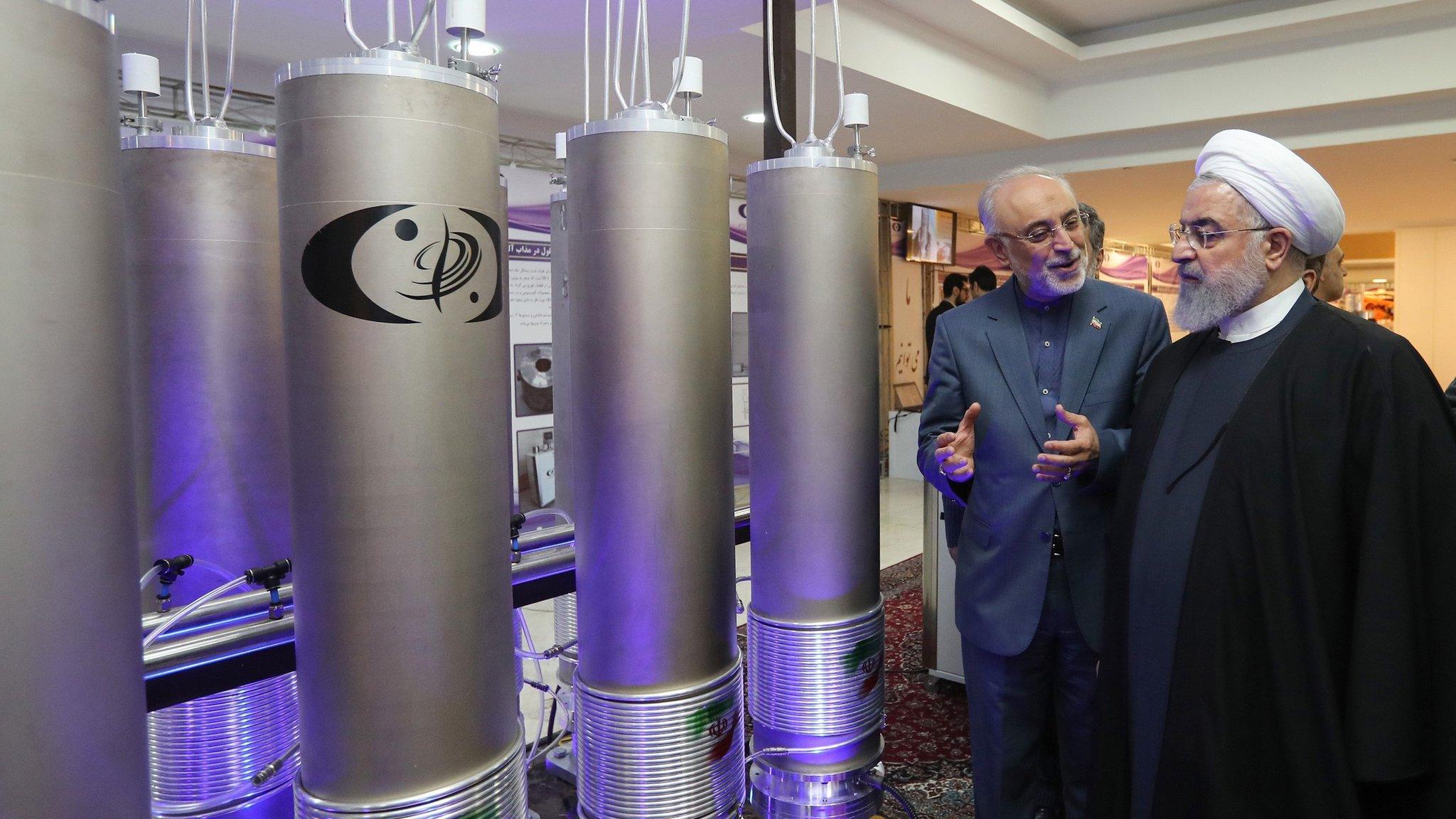
- Published26 August 2019
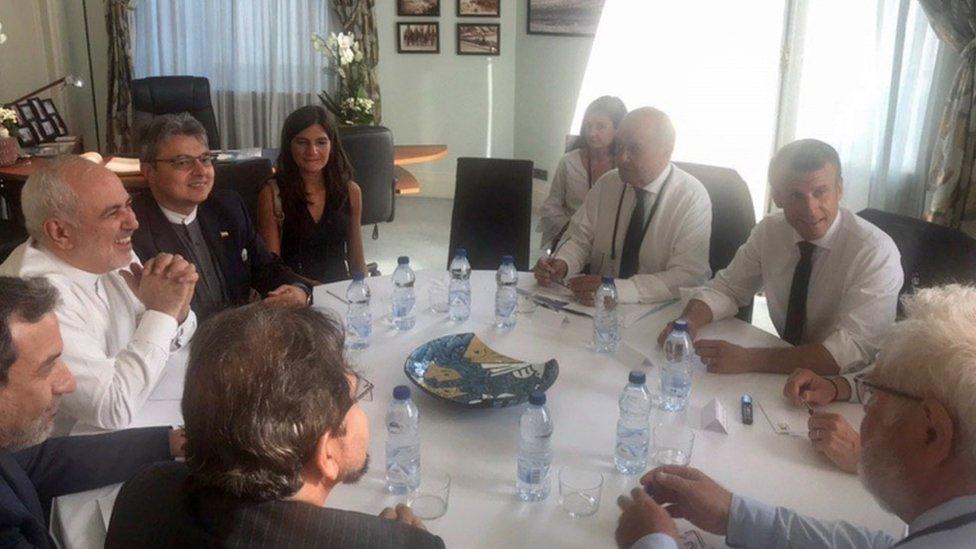
- Published16 November 2021
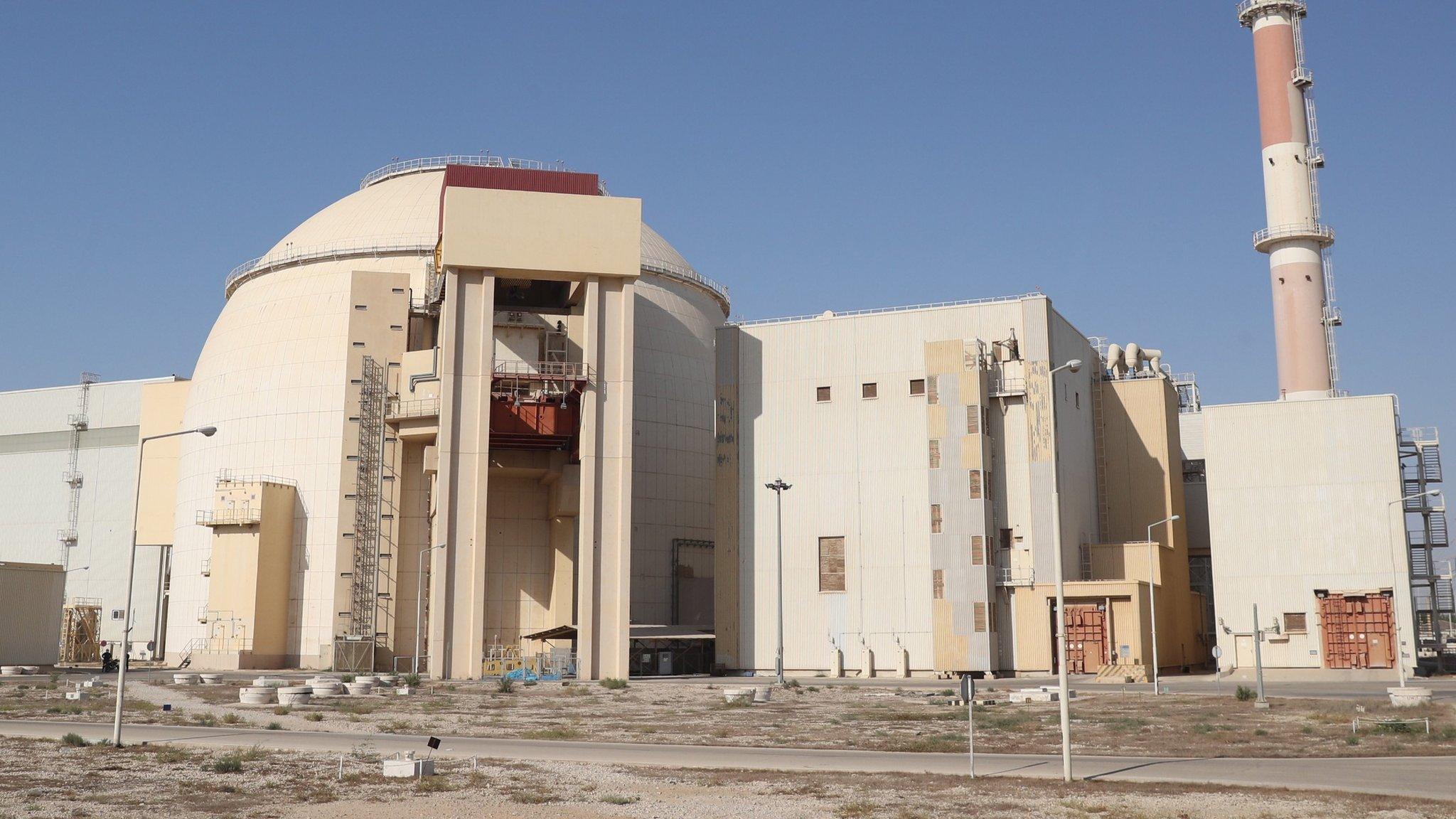
- Published19 August 2019
